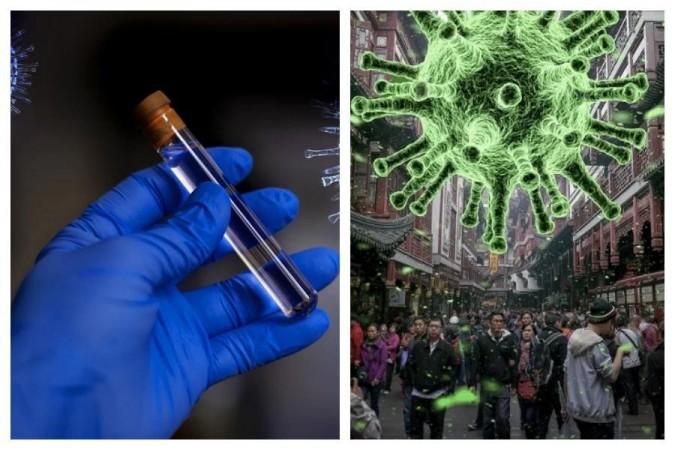Updating its guidelines on the impact of coronavirus on animals, US Centers for Disease Control and Prevention (CDC) has recommended pet owners to apply the principle of social distancing with regards to family pets too.
Social distancing applies to pets too
The CDC on Wednesday, April 29 said that pet owners should take the precaution of simply treating their pets like "other human family members," and not let them go outside or interact with other animals outside the household. This comes after two house cats in New York were recently tested positive for coronavirus. Though not confirmed, they most likely contracted the virus from their owners or people in the neighbourhood.

"Social distancing applies to your pets too," ABC News reported veterinary specialists, Dr. Melissa Salgado, saying it.
No evidence that animals transmit coronavirus
Even though there is no evidence that pets play a role in spreading the virus, experts say pet animals are at risk of developing the disease, so "it's best to err on the side of caution." The CDC said that there is nothing to panic about it's latest guidelines on pet animals social distance recommendation as it is just a precautionary measure. And unless there is enough data to know if animals too can transmit the virus, it would be advisable to take precautions with regards to them as we take precautions with any of other family members, the agency said.
As per the guidelines, pet animals should be kept at a distance from anyone who is sick and should be treated as a member of the house.
Some animals more susceptible to the virus than others
However, there are some experts who say that few animals are more susceptible to the virus than others.

Dr Sandra Newbury, director of the Shelter Medicine Program at the University of Wisconsin, says, "Cats have a particular receptor and we suspected early on that they might be able to be infected."
"We think it is more difficult to infect dogs and our experimental studies have proven just that," Newbury told ABC News. Reports of tigers, cats' larger relatives, cousin, at the Bronx zoo contracting the virus that cause COVID-19 reinforces this understanding.
"Animals could be asymptomatic too"
According to Newbury, there is a possibility that more animals could be infected but could be asymptomatic as was found in the case of a dog in Hong Kong. "The infected pets had no clinical signs, no symptoms at all", he said.
He, however, says that there is no need to panic since there's little evidence that owners pose a risk to their pets. He reiterated CDC guidelines that people should only take in-home precautions if someone in the home is sick.
CDC doesn't recommend routine testing for animals
CDC does not recommend routine testing of animals at this time and says "further studies are needed to understand if and how different animals, including pets, could be affected.
According to the World Health Organisation (WHO) also, there is no evidence that animals transmit coronavirus to humans.









!['Had denied Housefull franchise as they wanted me to wear a bikini': Tia Bajpai on turning down bold scripts [Exclusive]](https://data1.ibtimes.co.in/en/full/806605/had-denied-housefull-franchise-they-wanted-me-wear-bikini-tia-bajpai-turning-down-bold.png?w=220&h=138)



